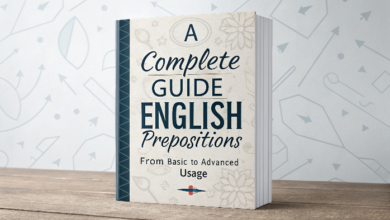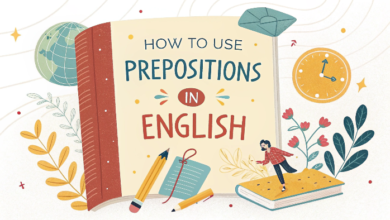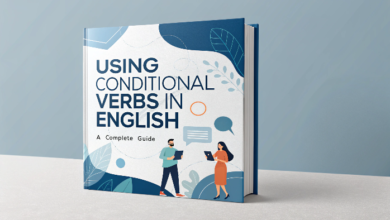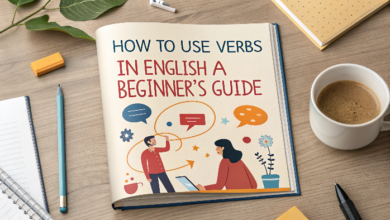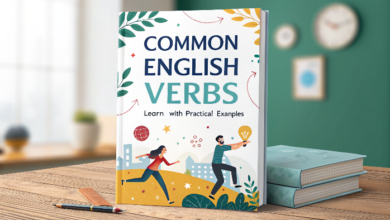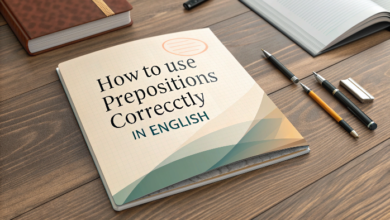Using Phrasal Verbs in English: How and Why
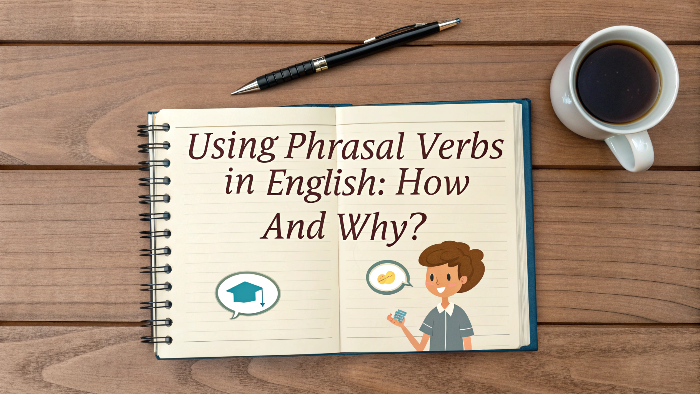
Common Phrasal Verbs and Their Meanings
Here are some common phrasal verbs and their meanings to help you get started:
Break down (to stop working):
My car broke down on the way to work.
Look after (to take care of):
She looks after her younger brother.
Bring up (to mention a topic):
I didn’t want to bring up the issue during the meeting.
Give up (to quit):
He gave up smoking last year.
Hang out (to spend time with friends):
We usually hang out at the mall after school.
Set up (to arrange or establish):
I need to set up my new computer.
Take off (to remove, or for a plane to leave the ground):
The plane took off at 9 AM.
He took off his shoes before entering the house.
Using Phrasal Verbs in English: How and Why
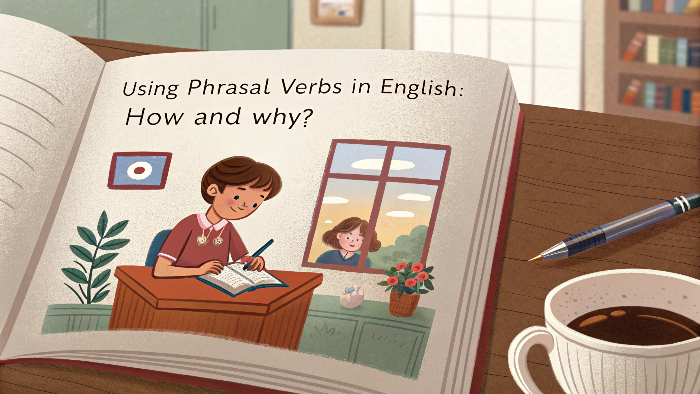
5. Exercises to Practice Phrasal Verbs
Exercise 1: Fill in the blanks with the correct phrasal verb.
I need to ______ (pick) my clothes from the dry cleaner.
She didn’t ______ (give) her bad habit of smoking.
Can you ______ (look) the phone number for me?
They always ______ (hang) at the coffee shop after school.
The car ______ (break) on the highway.
Exercise 2: Match the phrasal verb to its meaning.
Pick up
Look after
Give up
Set up
Take off
a) To stop doing something
b) To take care of
c) To remove something
d) To collect
e) To arrange or establish
Answers to Exercises
Exercise 1:
pick up
give up
look up
hang out
broke down
Exercise 2:
d) To collect
b) To take care of
a) To stop doing something
e) To arrange or establish
c) To remove something
Tips for Learning Phrasal Verbs
Learn them in context: Phrasal verbs often have multiple meanings depending on the context. Try learning them with real-life examples, such as in conversations, TV shows, or movies.
Group them by themes: Organize phrasal verbs into themes, such as “verbs for travel” (check in, take off) or “verbs for communication” (bring up, speak out). This will help you learn them more efficiently.
Practice regularly: To master phrasal verbs, you need to practice them frequently. Incorporate them into your writing and speaking as much as possible.
Conclusion
Phrasal verbs are an essential part of the English language, and mastering them will significantly improve your fluency. They are widely used in everyday conversation, and learning to use them correctly will help you sound more natural and confident.
So, why not start practicing today? With time, you’ll get more comfortable using phrasal verbs in your own speech and writing. Keep learning and practicing, and soon you’ll be using phrasal verbs like a native speaker!
See also:
Easy Grammar Quiz: Test Your English Skills
Boost your vocabulary skills with challenging quizzes

